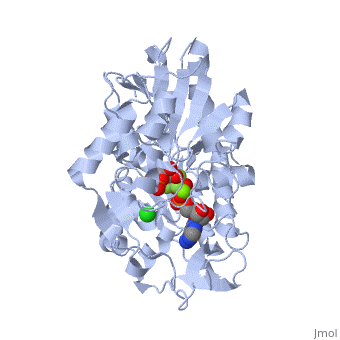Gluconeogenesis
Under development! Gluconeogenesis is a metabolic pathway that results in the generation of glucose from certain non-carbohydrate carbon substrates. Phosphoglycerate kinase is an enzyme that catalyzes the reversible transfer of a phosphate group from to ADP producing and ATP: In humans the main gluconeogenic precursors are lactate, glycerol (which is a part of the triglyceride molecule), alanine and glutamine. Other glucogenic amino acids and all citric acid cycle intermediates (through conversion to oxaloacetate) can also function as substrates for gluconeogenesis. 1,3-bisphosphoglycerate + ADP ⇌ glycerate 3-phosphate + ATP Like all kinases it is a transferase. PGK is a major enzyme used in glycolysis, in the first ATP-generating step of the glycolytic pathway. In gluconeogenesis, the reaction catalyzed by PGK proceeds in the opposite direction, generating ADP and 3-phosphoglycerate (3-PG)
|
| ||||||||||
